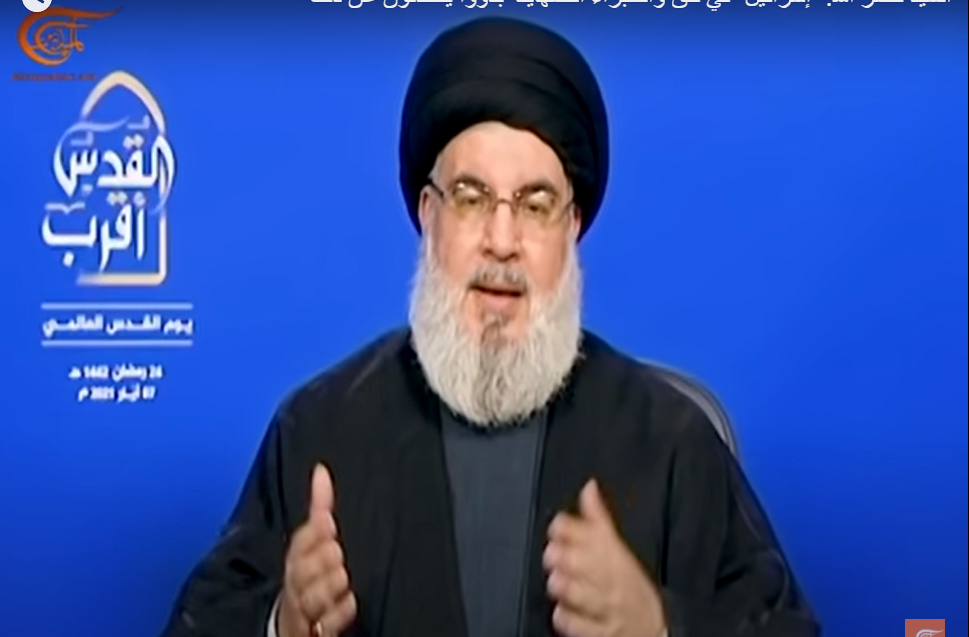In the wake of escalating tensions and provocations by Hezbollah along the border fence, Defense Minister Yoav Galant visited Mount Dov on August 8th to issue a stern warning to both Hezbollah and Lebanon.
“I caution Hezbollah and Nasrallah against making a grave mistake. Previous misjudgments incurred heavy costs. Should an escalation or conflict arise here, Lebanon could regress to the Stone Age,” Gallant firmly stated.
Through his message, the Defense Minister aimed to remind Lebanese citizens of the significant toll Lebanon paid during the 2006 Second Lebanon War, a result of Hezbollah’s provocations and errors.
This was an attempt to increase public pressure on Hezbollah to cease its border provocations against Israel.
During the Second Lebanon War, Israel targeted the al-Dahiya neighborhood in Beirut, where Hezbollah’s headquarters were situated.
In any future conflict with Lebanon, Israel has plans to cripple the entire civil infrastructure of the country.
While similar messages have been communicated to Hezbollah and Lebanon in recent years, Defense Minister Galant is now emphasizing these messages to clearly convey that Lebanon’s government also shares responsibility for the situation.
The government’s lack of action to persuade Hassan Nasrallah to halt his provocations imperils Lebanon by endangering it through the border tensions with Israel.
According to senior Israeli security officials, Iran is the driving force behind Hezbollah’s escalation.
While Hezbollah seeks to avoid a full-scale war, it aims to exploit what it perceives as Israel’s vulnerability due to internal crises related to legal reform.
This exploitation aims to wage a war of attrition along the northern border, weakening Israeli morale and undermining the government.
Hassan Nasrallah employs a strategy of brinkmanship, being willing to engage in brief clashes, yet avoiding a full-blown war.
Despite his inflammatory rhetoric and threats towards Israel, he recognizes that a substantial cost would be exacted by Israel and Lebanon if such a war were pursued.
Nasrallah’s overconfidence might push him to further provocative actions along the Lebanese border, as per Israeli intelligence assessments.
This strategy of escalation mirrors Iran’s approach seen in the Gaza Strip with the “return marches” from 2018 to 2021, culminating in the “Guardian of the Walls” operation on May 10th, 2021.
Given its understanding of Israel’s strength despite internal challenges, Iran fully supports Hezbollah’s strategy.
The crossing of red lines by Hezbollah holds significance regarding Israel’s anticipated response.
Iran leads the “axis of resistance” against Israel, recently deciding against direct action to avoid bolstering Prime Minister Netanyahu’s popularity.
Iran is closely observing Israel’s internal crisis, hoping for its worsening before reevaluating the situation—likely around October after summer vacation.
In the meantime, Iran encourages Hezbollah’s attrition strategy and aims to undermine IDF confidence.
Coordinating with Hamas and Islamic Jihad, Iran seeks peace on the Gaza-Israel border while supporting a war of attrition in Judea and Samaria through terrorist attacks.
To counter this Iranian plan, Israel should conduct more extensive military operations against armed terrorist groups in northern Samaria, building on the recent operation in the Jenin refugee camp. Similar operations in Askar and Nur Shams refugee camps are warranted.
Concerning the Lebanon border, Israel has contained Hezbollah’s provocations for weeks, necessitating a decisive response to any provocation, even if it triggers days of confrontation between the IDF and Hezbollah.
Such an Israeli response should be unexpected and forceful, with the IDF’s preparations already underway, though specifics remain undisclosed.
Hassan Nasrallah understands that an all-out war would severely harm his organization and Lebanon, deterring him from risking Lebanon’s destruction again. Israel must capitalize on this knowledge to its benefit.




